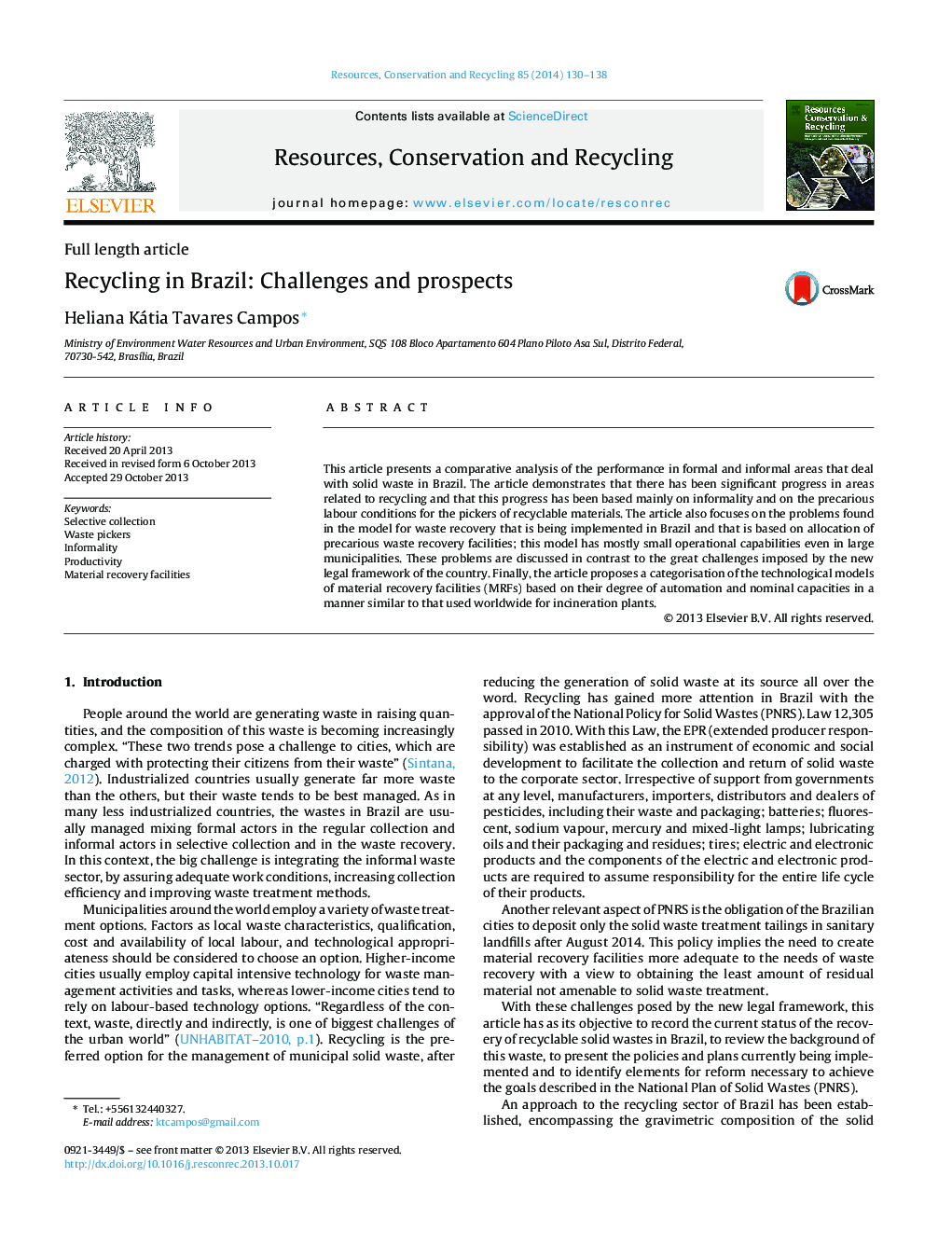| Article ID | Journal | Published Year | Pages | File Type |
|---|---|---|---|---|
| 1062968 | Resources, Conservation and Recycling | 2014 | 9 Pages |
•Selective collection is ordinarily performed under very precarious and inhumane conditions in Brazil.•Closing the dumping sites induces a temporary reduction of recycling rates.•Work conditions in MRFs are usually very unsanitary.•The high rates of recycling are due to intense exploitation of the informal sector of society.
This article presents a comparative analysis of the performance in formal and informal areas that deal with solid waste in Brazil. The article demonstrates that there has been significant progress in areas related to recycling and that this progress has been based mainly on informality and on the precarious labour conditions for the pickers of recyclable materials. The article also focuses on the problems found in the model for waste recovery that is being implemented in Brazil and that is based on allocation of precarious waste recovery facilities; this model has mostly small operational capabilities even in large municipalities. These problems are discussed in contrast to the great challenges imposed by the new legal framework of the country. Finally, the article proposes a categorisation of the technological models of material recovery facilities (MRFs) based on their degree of automation and nominal capacities in a manner similar to that used worldwide for incineration plants.
